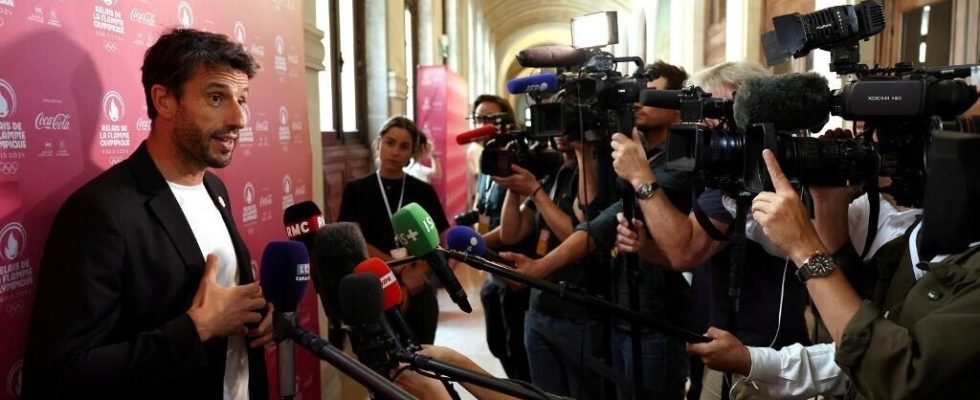The 17th International Journalism Conference opened this Monday evening in Tours, in west-central France. For three days, round tables and debates will be held on the state of journalism and the expectations of public opinion, in this Olympic year with the holding of the Olympic Games in Paris between July and August, a particular aspect conducive to journalism sport.
3 mins
What relationship does opinion have with the processing of sports information? What do viewers, listeners and newspaper readers “consume” in terms of sport ? The question is vast and can be approached from different angles. To try to answer this, the Viavoice institute conducted a survey among the French population. Its results will serve as support this week for the debates at the Journalism Conference in Tours.
First lesson, sport, as it is treated and covered by the media, enjoys good credibility: 78% of people questioned by Viavoice say they have “ trust » in the sports information served to them. Sport thus comes to the top of this “ trust factor ”, just in front of culture. Questions related to international issues, for comparison, come far behind, with only 54% of respondents trusting the media’s work in this area. As for everything relating to the political life », more than one in two respondents say they do not trust the information provided.
If sport has good press, it is both because those who consume it in the media expect something specific, namely for 75% of them “ results of matches and competitions ” And ” reports “, but also because the sporting subject is perceived as a ” entertainment ” or one ” popular topic of conversation “. A way, in short, of building social bonds. Being able, at the coffee machine, to talk about the latest PSG match or the exploits of gymnast Simone Biles.
Popular football
Sport is primarily consumed on television (73%), more than on the Internet (49%) or on the radio (41%). As for the written press, it certainly remains ahead of social networks (29%), but only a third of respondents look for sports news there (34%).
The Viavoice survey also highlights a gender gap. In other words, the relationship with sports news still remains “gendered”: two out of three men say they are interested in it “ regularly », compared to only a third of women. This relationship is also found in the content of what public opinion consumes. “Men’s” sports news is followed “ regularly » by 42% of respondents, compared to only 30% for “women’s” sport. In the same logic, even if progress has been recorded in recent years, sports news is covered primarily by male journalists. An imbalance that raises questions: 75% of respondents would like to see more female journalists on sports topics.
The French’s favorite sports
THE football is popular: 43% of those questioned ensure they follow it “ almost every day “. Behind ? Rugby, in the wake of the World Cup that France hosted in the fall, is holding up well (15%). Then we find tennis (7%), then cycling, Formula 1, basketball, which all hold on to 5% of sports news consumption. In this survey, we notice that e-sport and mixed martial arts (MMA) can create a buzz on social networks, but that they arrive at the bottom of the ranking (1%), when we ask the French what are the sports that they follow as a priority.
Also interesting is the question of the bias of sports journalists in their comments. On the one hand, 76% of respondents believe that sports journalists must be “ neutral ” And ” do not display their preferences “. But on the other hand, when we ask the French what they expect from journalists when a team or an athlete represents France, 45% want these same journalists to “ support and show their preference “.
All of this brings us to next summer’s Olympic and Paralympic Games in Paris. The French are currently watching the event from afar. In the study carried out by Viavoice at the beginning of March, only 37% of them said they were “impatiently” awaiting the Olympics.
